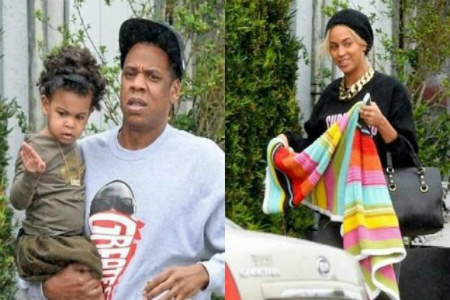
Before Blue Ivy was able to walk or speak her first word, the heir to hip-hop’s most talked about couple had already acquired herself a legion of haters.
Like many Black girls, Blue Ivy’s hair has been the focus of much scrutiny. Here the naysayers accuse Beyonce and Jay Z of being too rich to allow their toddler to be photographed with hair considered to be “undone,” even going as far as accusing The Carters of neglect. And the harsh words aren’t just reserved for those in the spotlight (though girls like Gabby Douglass and Willow Smith have been media targets for their hair too). Last year, 12-year-old Vanessa VanDyke made headlines when she was given an ultimatum by her school: cut your “distracting” hair or be expelled.
Well, for everyone who agrees a Black girl’s natural hair is less than stellar — or for those who want to remind our daughters just how beautiful they are — I suggest you read author Betty K. Bynum and illustrator Claire Armstrong’s novel “I’m A Pretty Little Black Girl” (Dream Title Publishing)
The children’s book was nominated for this year’s NAACP Image Award for Outstanding Literary Work. Readers are introduced to Mia, a little girl who wakes up with her hair “just-a-going every which-a-way” but instead of being ashamed of her wild mane, Mia looks in the mirror, smiles and says “I’m a pretty little black girl.”
Let me repeat. Mia says “I’m a pretty little black girl” not “my hair is wild and wrong and I need to get it together before I dare step outside and have anyone see it.” The focus on a young Black girl who was happy with who she is, just the way she is, and affirms it is a refreshing narrative worth reading every day to counter the commentary we often see of our Black girls — and their hair — in the world.
In an interview with BlackAmericaWeb, Armstrong, a Los Angeles based author, actress and mother said she wrote the novel to celebrate the beauty and diversity of little black girls every where. Bynum made sure to open the novel with a young girl not bound to the stigma associated with having “good hair,” and also reflects on the different shades and beauty of young black girls.
While the book was intended for girls ages two to nine years old, Bynum said adult women have also ordered the book for themselves, further proof criticism woman of color may have received as girls are still unhealed wounds, which makes “I’m A Pretty Little Black Girl” even more vital.
Black girls are taught from an early age something is wrong with them, whether it be there hair, complexion, or body, society tells young girls they’re wrong and Bynum who was also taunted as child because of her dark skin, decided to counter the negativity by writing a book with a simple, yet powerful concept, that a little black girl could be pretty.
What a genius thought.
